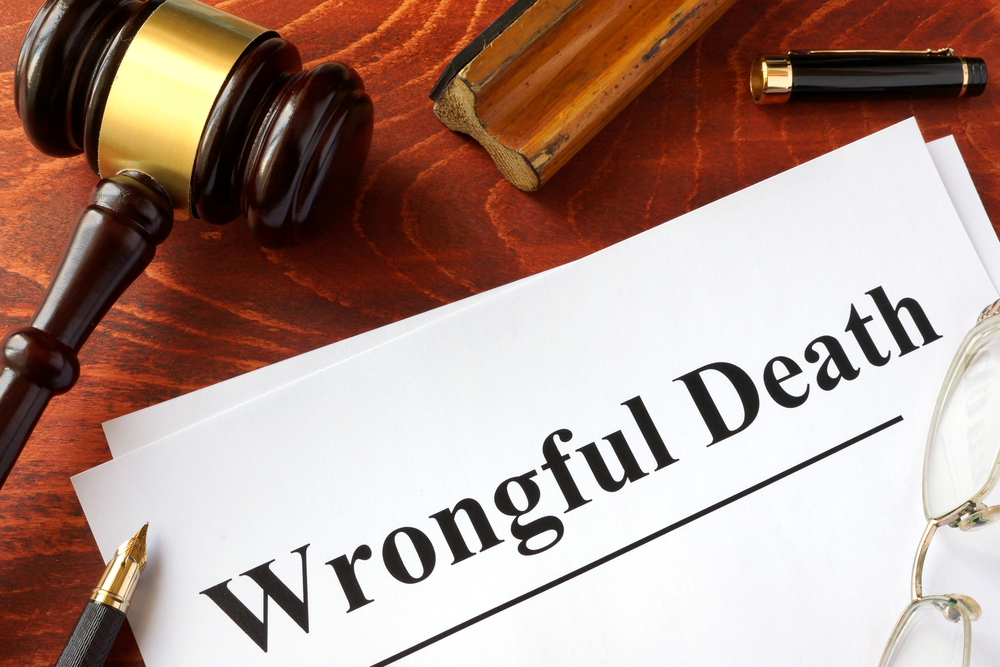 A person’s death can have widespread and far-reaching impacts—especially if that person’s death was brought on by the intentional actions or negligence of another person or party. But in the instance of a wrongful death suit, not everyone touched by the person’s death can file a suit against the responsible party. Keep reading to learn more about who can sue in the case of a wrongful death, as well as other details about how wrongful death suits work.
A person’s death can have widespread and far-reaching impacts—especially if that person’s death was brought on by the intentional actions or negligence of another person or party. But in the instance of a wrongful death suit, not everyone touched by the person’s death can file a suit against the responsible party. Keep reading to learn more about who can sue in the case of a wrongful death, as well as other details about how wrongful death suits work.
What Is a Wrongful Death?
First and foremost, it’s important to understand what qualifies as a wrongful death. Wrongful death claims may be applicable if an individual dies as a result of another person’s actions or negligence. Essentially, if the deceased would have had a valid personal injury claim had they survived, then certain survivors of the deceased will likely have a valid wrongful death claim. These cases usually arise in the following types of situations:
These are just a few common examples of situations that can result in wrongful death claims. If your loved one died as the result of some other form of negligence or intentional action, you may still have a wrongful death case, even if the situation does not fall into any of the above-mentioned categories.
Who Can File Suit?
Now that you have a basic understanding of what may or may not qualify as a wrongful death, we must address who exactly has the right to sue in such cases. Wrongful death cases are typically filed by a representative of the deceased victim’s estate, on behalf of the deceased’s survivors. However, who exactly those survivors can be will vary from state to state.
In every state, a deceased victim’s spouse may file a wrongful death suit. The same is true for parents of minors who have been killed, and for minors whose parent or parents are the victims of wrongful death. However, not every state agrees that parents can sue for the wrongful death of an adult child, or if an adult child can sue for the wrongful death of a parent. Laws regarding the wrongful death rights of grown siblings and extended family members also vary from state to state.
Certain states also allow anyone who can prove financial dependence on the deceased to file wrongful death suits, including romantic, but unmarried partners. If you’re not sure of the wrongful death laws in the state your case is being filed in, contact one of our attorneys.
Proving a Wrongful Death
In order to hold a defendant in a wrongful death suit legally liable for the victim’s death, the plaintiff must show a direct connection between the defendant’s actions (or inaction) and the person’s death. For example, if your spouse died during a complicated surgery, you must be able to prove that the surgeon neglected to perform their duties in a manner expected of any medical professional, and that their neglect resulted in your spouse’s death, as opposed to your spouse passing simply because of the difficult nature of the surgery.
It’s important to be aware that the burden of proof lies on you, the plaintiff. You must be able to show that the defendant was negligent or took intentional action to harm the deceased. You need to then show that their negligent or malicious actions directly led to your loved one’s death, and that the person’s death had a direct and measurable impact on you if you hope to receive some kind of settlement for your family member’s death.
If you lost a loved one as a result of another person’s or party’s negligence or intentional actions, contact us to schedule a free consultation with one of our attorneys. Will help you to determine if you have a viable wrongful death case. Call us today.